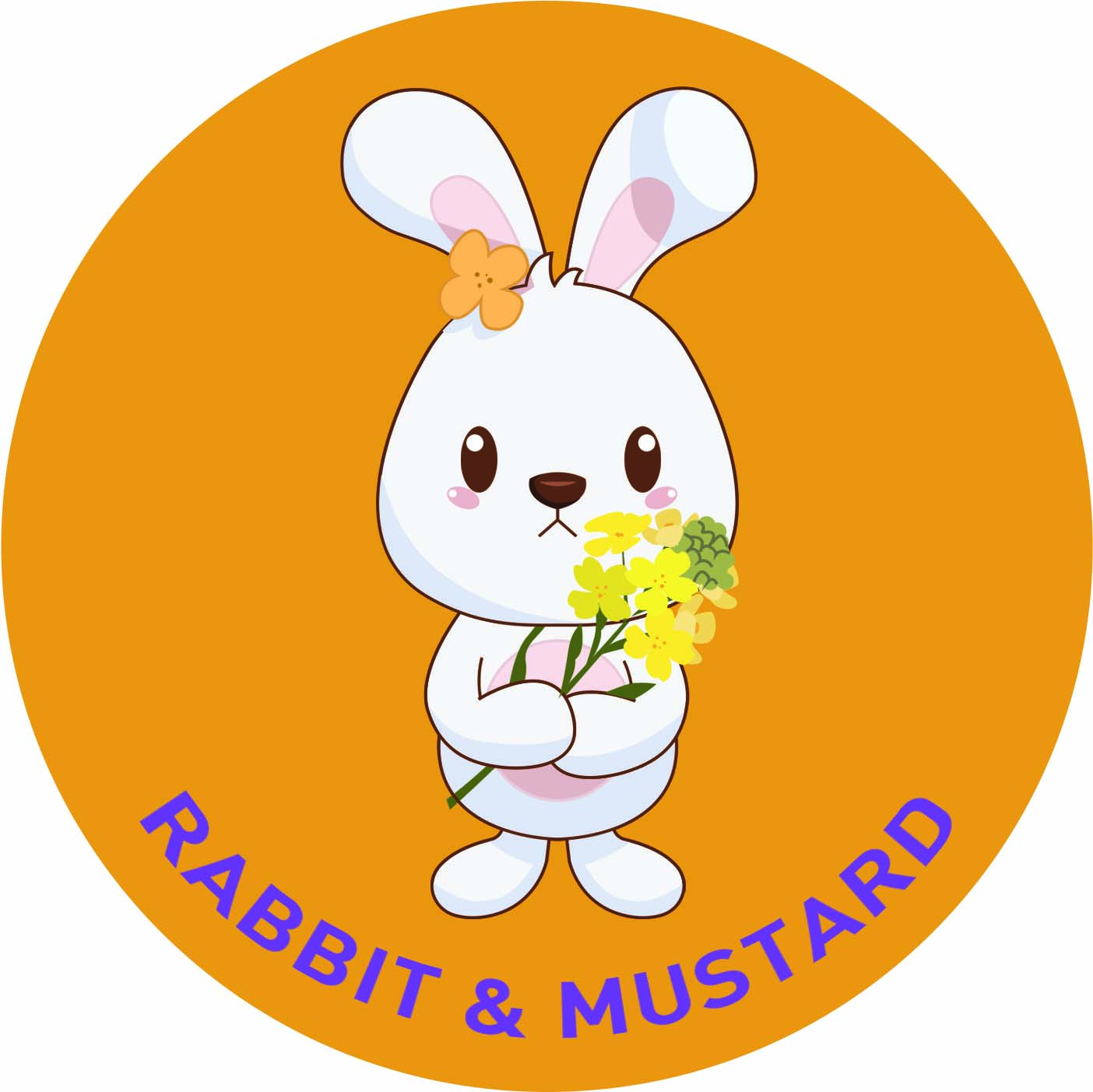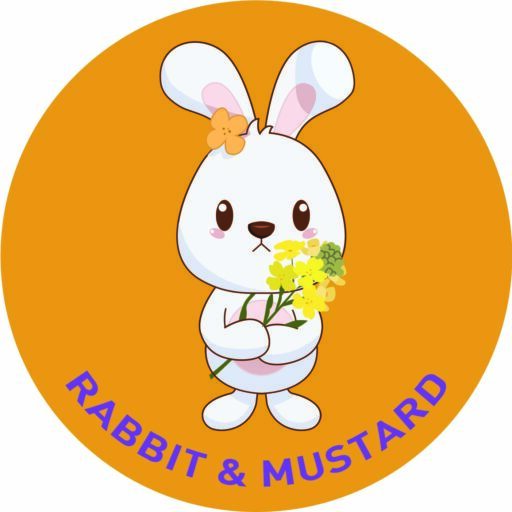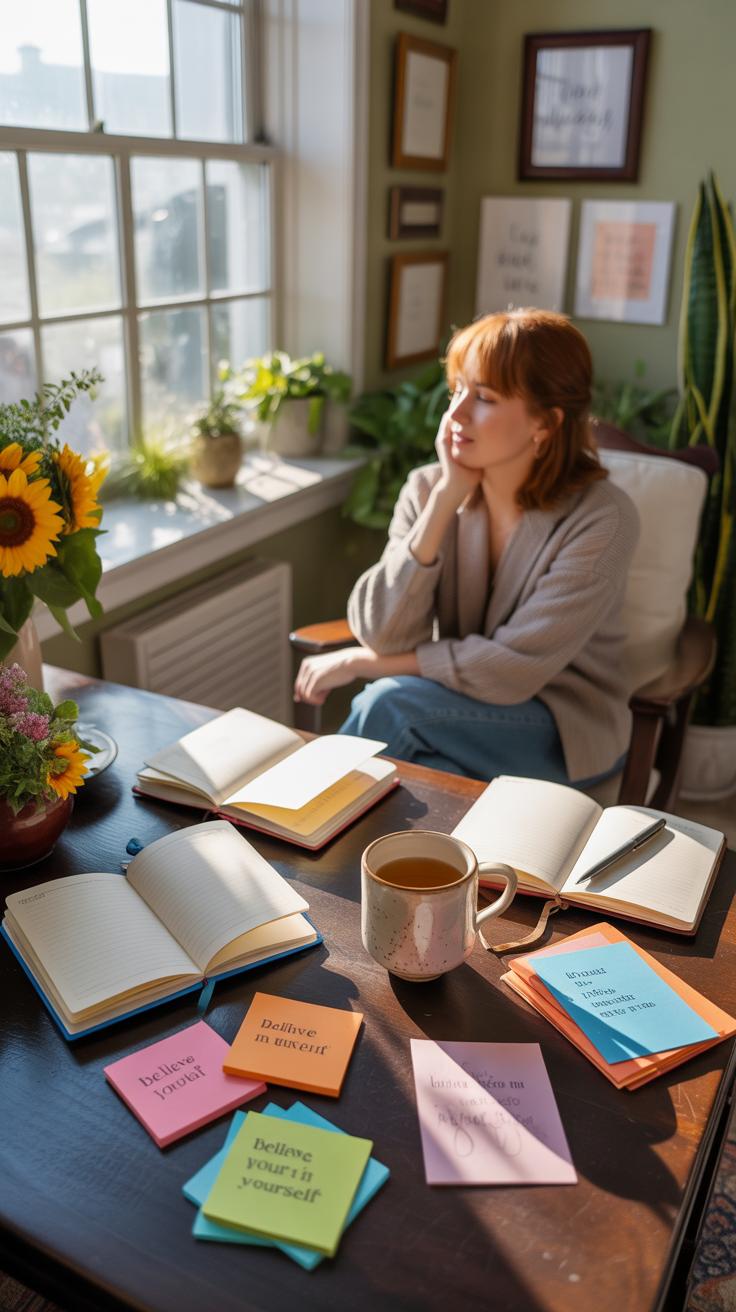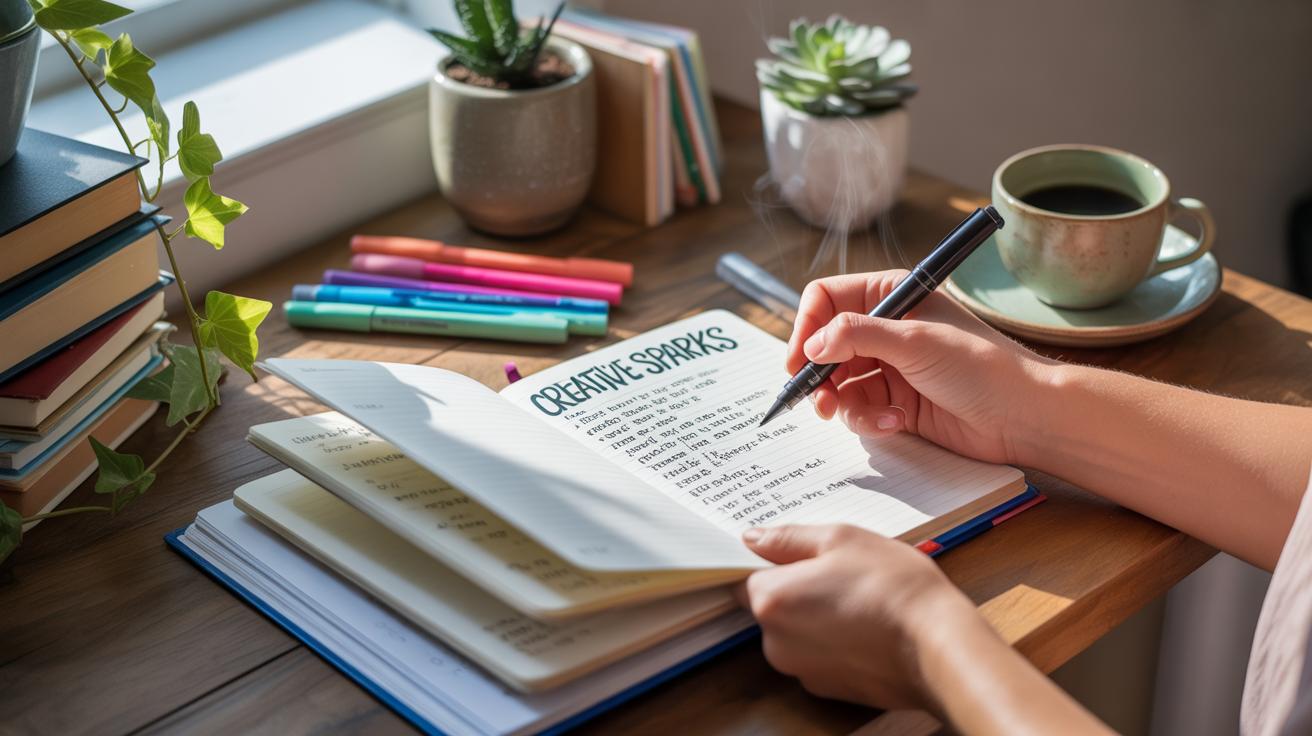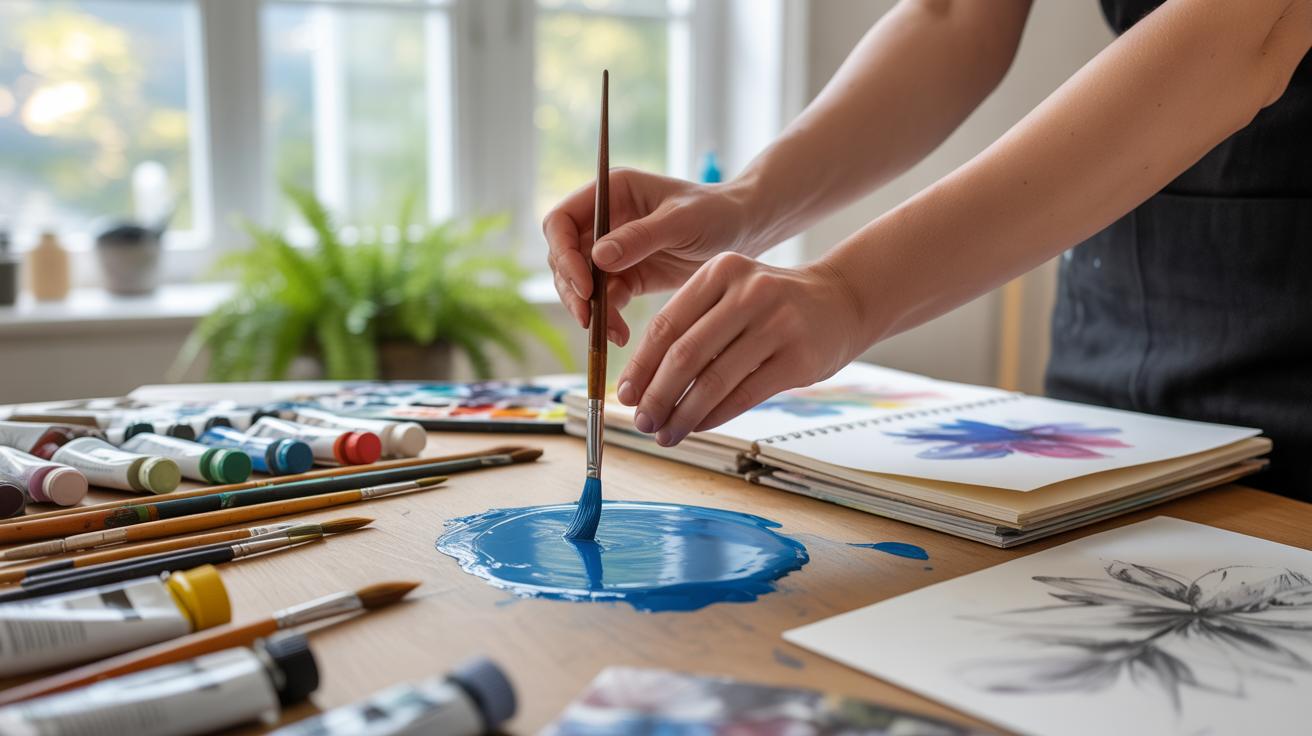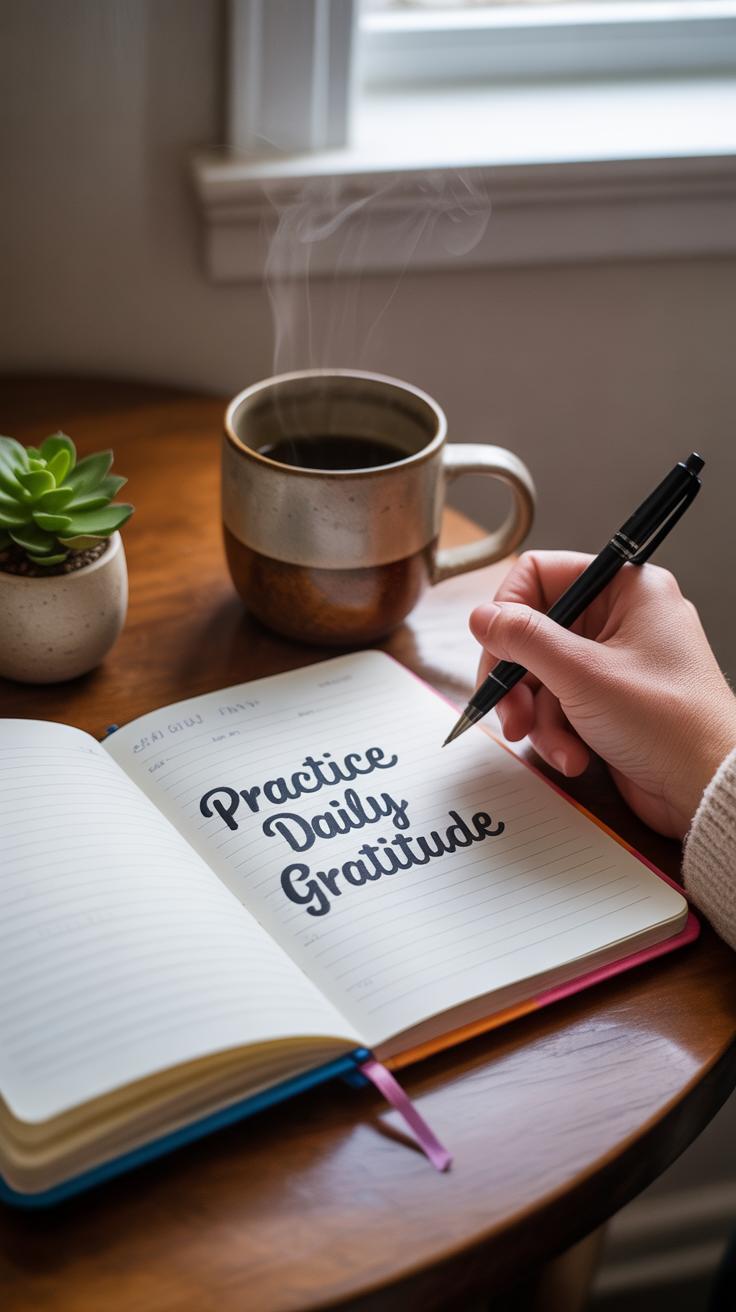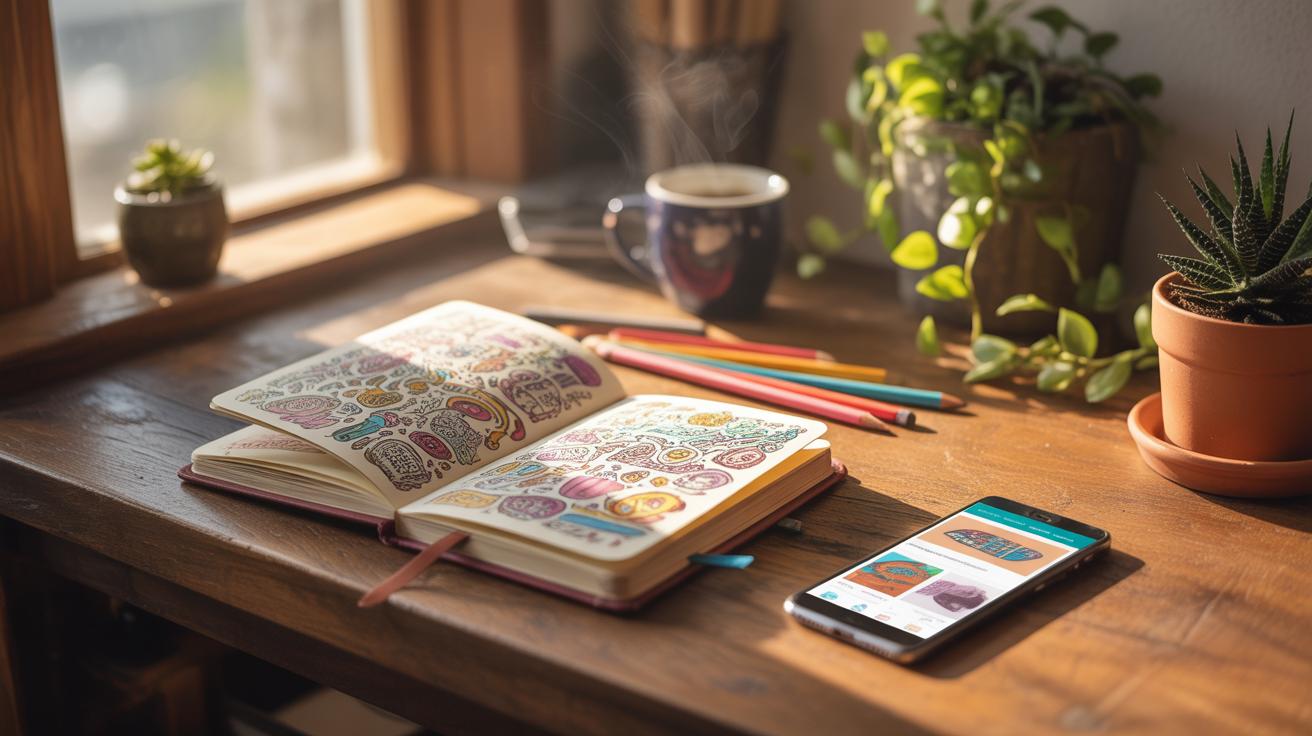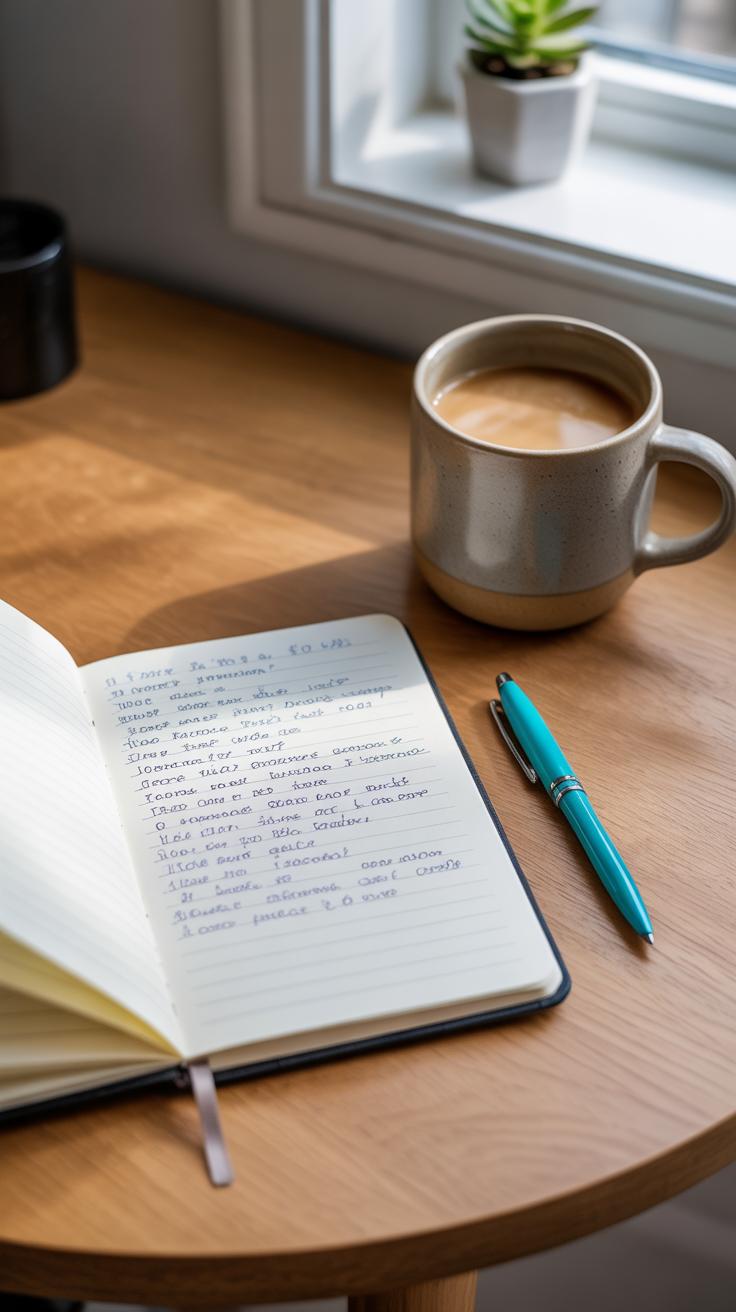Introduction
Journaling is a simple way to grow your creativity and have fun. When you write regularly, you can discover new ideas and express yourself in fresh ways. This article will explore lots of things to journal about that help you think differently and enjoy the process.
You don’t need to be a writer or an artist to benefit from journaling. You only need to start with some interesting prompts and keep your mind open. Let’s look at some great topics that you can add to your journal for creative growth and fun moments.
Daily Life Moments Write About Your Everyday Activities
Try writing about what you do each day. It might sound simple, but noticing the small stuff can open up new ways to see your life. For example, what did you actually do today? Maybe you brewed your coffee differently or paused longer on the way to work. How did those moments feel? Was there a hint of impatience waiting for the bus, or maybe a flicker of calm watching the sky?
Focus on details you might usually miss—the sound of footsteps in a hallway, the way the light hit your desk, or even the texture of your lunch. These subtle things can bring unexpected inspiration. Don’t feel pressured to make it interesting. Even noting that the day felt a bit slow or the toast was just burnt enough to be frustrating has value.
Routine Observations
Describe a typical day for you. What does that really look like? Maybe your morning is hectic, but there’s a peaceful moment when you water plants or check the mail. Or perhaps the same tasks feel different today—why?
Ask yourself what small moments make your day unique. What gave you a brief smile or a little challenge? Sometimes the things that repeat can actually change in quiet ways that journaling helps you catch. Writing about routine might even show you patterns you hadn’t noticed, like how your mood shifts after certain activities.
Unexpected Details
Look for one moment that felt out of place today—maybe something funny, odd, or surprising. Did the cat suddenly jump onto your keyboard? Was there an odd conversation you overheard? Write about it in detail, like capturing a snapshot.
Detailing this can lighten your day or bring a fresh perspective. It might feel random, maybe even trivial, but such moments can spark ideas or simply remind you that life isn’t always predictable. Try to describe not just what happened, but your reaction, your thoughts, and maybe what it made you wonder about.
Emotions And Feelings Explore Your Emotions by Journaling
Writing about how you feel right now can reveal more than you might expect. Try to name your feelings clearly—are you anxious, excited, tired, or maybe a little restless? What triggered these emotions? Is it something you just experienced, or a thought that’s been lingering? Describe how these feelings show up in your body. Do your shoulders tense, or does your heart race? Do your thoughts loop over the same ideas or wander away?
Sometimes, just putting this into words can help you see patterns. It might feel a bit strange or awkward at first; you could hesitate or struggle to find the right expressions. That’s okay. The goal isn’t perfect language but honest exploration. Wonder why this emotion feels so strong—or why it fades quickly. This process can make your feelings less overwhelming, more manageable.
Looking back at past emotions is equally revealing. Think of a time when you felt deeply hurt, joyful, or frustrated. What was happening then? How did you react? More importantly, what did you learn about yourself or others? Maybe you discovered patience, or realized certain situations drain you more than you thought. Writing about these moments helps you notice how your emotional responses have shifted—or stayed surprisingly the same over time.
When reflecting on past feelings, you might find some contradictions. For example, a memory that once felt painful might now seem less sharp, or even strangely comforting. That’s part of the process. Your perspective changes, and journaling records this evolution quietly, without needing to make sense of everything immediately.
Dreams And Aspirations
Take a moment to picture your future. Not in vague terms, but as if it’s already unfolding. What are you doing? Where are you? Imagine that you’ve quietly achieved something meaningful. Writing about your hopes this way can unravel hidden desires or make your ambitions feel more real — even if they seem far-fetched at first. You might catch yourself hesitating, wondering if it’s too bold. That’s okay. Those doubts can tell you a lot about what matters.
Try describing a perfect day five years from now. Who’s there with you? What sounds fill the background? Think about the little details—the morning light, a laugh, a smell. This isn’t just wishful thinking; seeing your ideal future in writing can help you understand what you want most. You may notice it’s less about big achievements and more about how you feel or who surrounds you.
From there, jot down small steps you can start taking. These don’t have to be monumental. Maybe it’s setting aside 10 minutes to sketch, reaching out to someone new, or reading that book that’s been sitting on your shelf. Progress is often about tiny moves rather than leaps.
- Describe your future as if it’s happening now—don’t hesitate to be specific or even a bit unrealistic.
- Visualize your perfect day in five years. Who’s part of it? What’s going well?
- List easy, concrete actions. What’s the very next step you could take?
Writing like this can flip your perspective. Rather than feeling stuck, you start to notice possibilities. It’s surprising how much clarity can come from simply putting these ideas on paper.
Creative Writing Prompts
Sometimes, all it takes to get your creativity flowing is a single word or a simple sentence. You might try starting with a phrase like “The door creaked open”—just that, nothing else—and let your mind wander. Who’s opening the door? What’s on the other side? The story that follows doesn’t have to be long or polished. Just a few lines can reveal new ideas or feelings you didn’t expect.
Poetry works in a similar way. Pick a color or a sound that sticks with you today. Maybe it’s the blue of a worn jacket, or the distant hum of a city street at night. Write whatever comes to mind, without worrying about rhyme or form. Let the image or noise guide the words. You might find something surprising hidden in something so simple.
- Try a story starter and build a scene or character around it.
- Choose a sensory detail—a smell, taste, or texture—and write a poem inspired by it.
- Set a timer for five minutes and write nonstop, letting ideas spill out freely.
Playing with prompts like these helps loosen your thinking. You might not finish the story, and that’s okay. Even unfinished pieces hold value—they capture a moment of imagination that could grow later. Have you noticed how a tiny spark sometimes leads to bigger ideas? These prompts are the spark.
Nature And Environment
Take a moment to really notice the world around you. Writing about nature isn’t just watching the trees or the sky—it’s about how those elements affect you. What did the last bird you saw make you feel? Did the shifting clouds remind you of something, or maybe spark a quiet thought? Try jotting down details about the animals, plants, or weather you encounter, and pay attention to any unexpected inspiration they bring. Even a brief glance at a wilting leaf might reveal something about cycles or change.
When you’re outside, think about a specific place you visited. Can you capture the mix of sounds, sights, or even smells? Maybe the rustle of dry grass or the faint scent of pine stuck with you longer than you realized. Describe these moments thoroughly; you may find that sensory recall triggers ideas or emotions you hadn’t noticed before. Sometimes, those little things are exactly what your creativity needs.
Seasons don’t just mark time—they can influence your mood or the way you spend your day. How does the sun’s angle or the cooler air shift your thoughts or energy? Maybe winter slows you down, pushing you indoors, but also nudging you toward reflection or planning. Or perhaps spring stirs a restless urge to create or explore. Writing about your reactions to seasonal change helps connect your internal world with the external one. It’s a reminder that creativity doesn’t exist in isolation; it moves with your environment, sometimes in subtle ways.
Personal Growth Reflections
Your journal can be a space to explore what you’re learning about yourself and where you want to go next. Take a moment to consider habits you want to change or skills you hope to build. Maybe you notice you get distracted easily, or perhaps you’re working on being more patient. Writing these thoughts down helps make them clearer—though sometimes it feels a bit frustrating to admit them on paper.
Try reflecting on recent challenges too. What did that difficult conversation or failed project teach you? Often, lessons aren’t obvious until you stop and think about what really happened. You might find you gained patience, or recognized a need to communicate more openly. It’s okay if these insights aren’t neat or complete; reflection isn’t about quick answers.
Review your goals in the journal. Are you closer to finishing that big idea or skill? What steps could come next? Sometimes, progress feels slow or even invisible, but writing it out shows the small wins. You might discover that tweaking your approach is needed, or that your priorities have shifted. It’s normal if your goals don’t feel set in stone—maybe they’re still unfolding.
Gratitude Journal
Writing daily about what you’re thankful for isn’t just a feel-good exercise. It’s a way to shift your focus toward what’s working in your life, even when things feel out of balance. Try listing a few positives each day—this habit can nudge your mind to notice good things you might otherwise overlook.
For example, I once started jotting down three things, no matter how small, that made me smile or feel a bit lighter. Some days, it was a cup of tea; other times, a quick chat with a neighbor. On rough days, it felt silly, but slowly, it helped me build a quieter awareness of simple pleasures.
Think about people you appreciate. Writing about why someone matters to you can deepen your connection with them and remind you of your support network. Maybe it’s a friend who always listens, or a colleague whose work ethic inspires you. Putting those thoughts on paper can bring surprising perspective—and maybe even inspire a message or a call you’d been putting off.
Try these prompts:
- What three small things made you happy today?
- Who do you appreciate right now, and why?
- What simple moments or experiences are you thankful for today?
Sometimes gratitude journal entries might feel repetitive or forced, and that’s okay. The act itself, imperfect as it is, matters more than perfection. What could you discover if you keep trying?
Creative Problem Solving
Pick a problem that’s been on your mind recently. It could be anything—something about work, a personal challenge, or even a creative block. Write it down clearly. What exactly makes this problem hard? Maybe you feel stuck because you don’t have enough information, or perhaps the stakes seem too high. Writing it out helps you face the issue, rather than letting it lurk in the background.
Next, try jotting down three possible solutions. Don’t censor yourself—include ideas that seem odd or impractical. Sometimes, the strangest options lead you to something unexpected. For example:
- Could you approach the problem from a completely different angle?
- Is there a simple change to your routine that might help?
- What if you asked someone else for their take?
Writing ideas—even the half-baked or quirky ones—can open up space for creativity. You might not solve the problem immediately, but the shift in thinking often plants seeds for something better. Ever noticed how once you start writing, new thoughts pop up that you hadn’t considered before? That’s the subtle power of putting problems on paper.
Memory Keeping Journaling is a Way to Save Memories
Journaling offers a simple, personal way to hold onto moments that matter. Writing stories or facts about important events or people lets you preserve them in your own voice—something photos or videos don’t always capture fully. Think about how you remember a conversation, a glance, or a sudden feeling during a special day. Putting those into words can reveal layers you hadn’t noticed before.
Special Event
Try describing a recent event that meant something to you. What did you see, hear, or feel? Maybe it was a quiet dinner with a close friend or a surprise party that caught you off guard. Don’t just list what happened; include your emotions—even if they feel mixed or confusing. That little detail about how the room smelled or what song was playing can anchor that memory firmly in your mind.
Family Stories
Think about a story involving a family member or friend who has shaped you in some way. Perhaps it’s a tale often retold at gatherings, or maybe a moment you never shared out loud. Writing it down allows you to explore why that person is significant. You might notice contradictions about them you hadn’t considered before, or find connections between past and present. What do you remember most vividly? What does that reveal?
Mindfulness And Awareness
Try tuning into your senses with your journal. You might start by listing things around you—five things you see, four you hear, three you touch, two you smell, and one you taste. It sounds simple, but this kind of focused attention can pull you into the present in a pretty immediate way. Maybe you notice details you usually miss, like the tiny scratch on your mug or the distant hum of a lawnmower.
Then, write about your current moment without judging it. How do the sights, sounds, and sensations make you feel right now? You don’t have to make it profound or poetic. Just let your journal capture what’s there—frustrations, calmness, or maybe just boredom.
This practice encourages you to slow down, to pause and really observe. You might find it messy at first—your thoughts bouncing around or descriptions that feel clumsy. That’s fine. Just doing it consistently shapes a habit of awareness that can spark creativity in unexpected ways.
Conclusions
Journaling about different subjects can open your mind and boost your creativity. It helps you capture your thoughts, feelings, and ideas in a way that lets you learn about yourself. When you try new prompts, you keep your writing fresh and exciting.
By making journaling a habit, you create a tool for growth and relaxation. It offers you space to experiment and enjoy your creativity every day. Try the ideas you learned here and watch your creative skills grow while you have fun.
